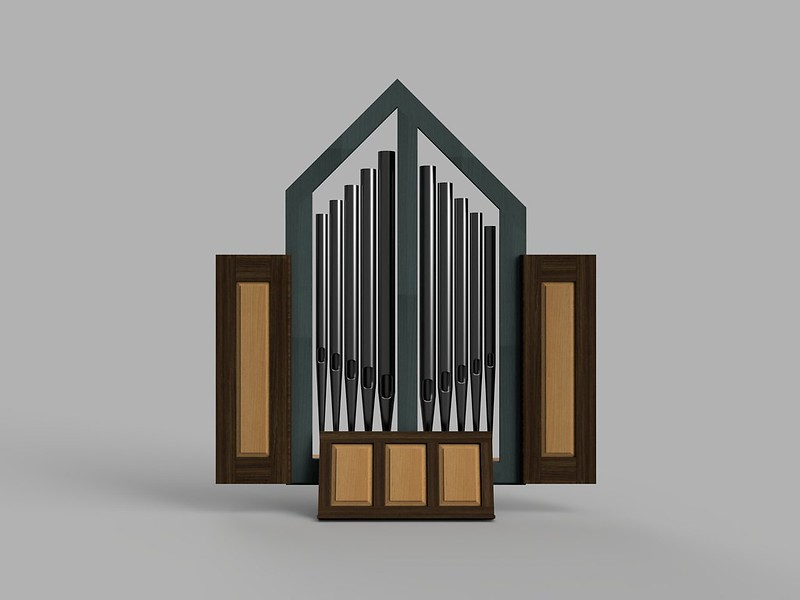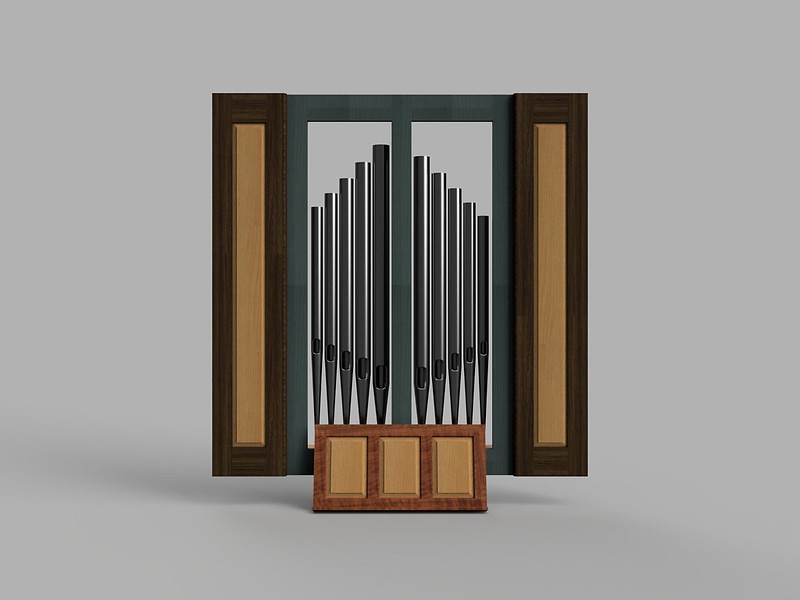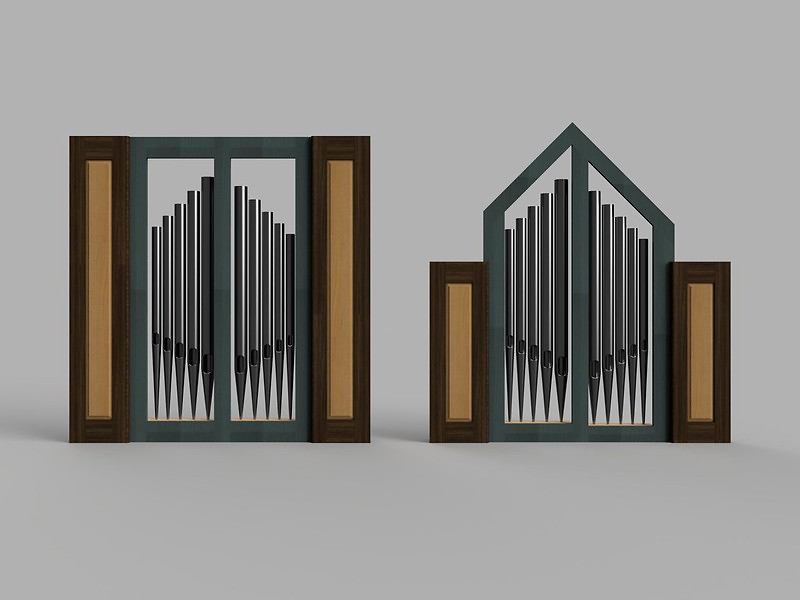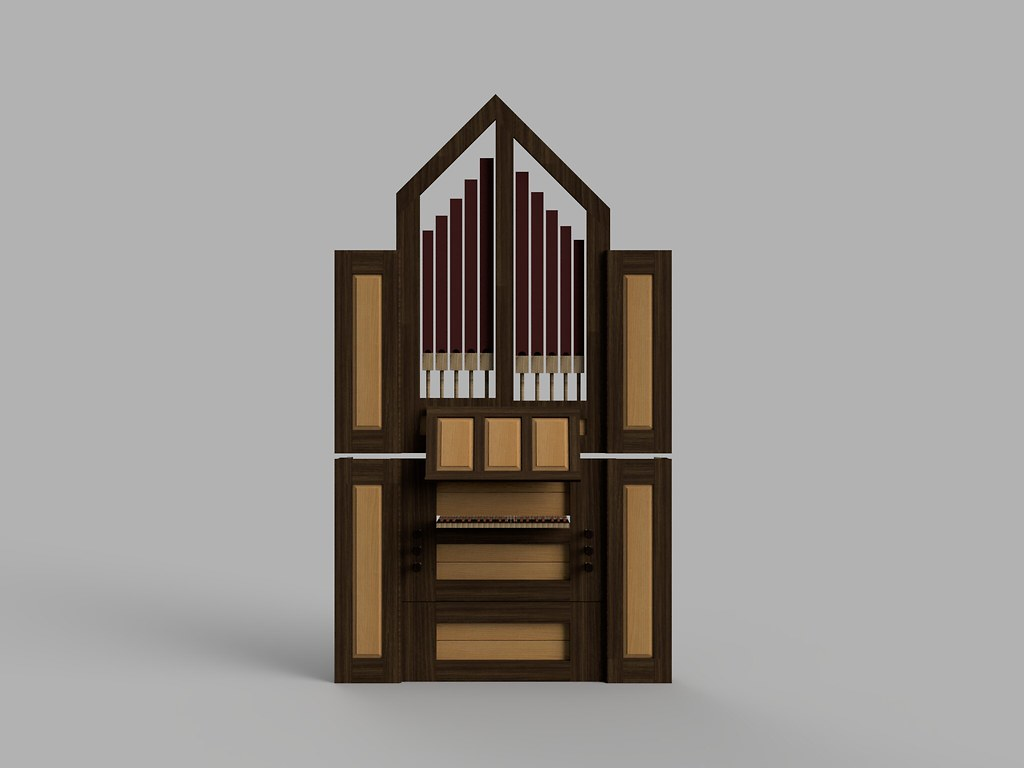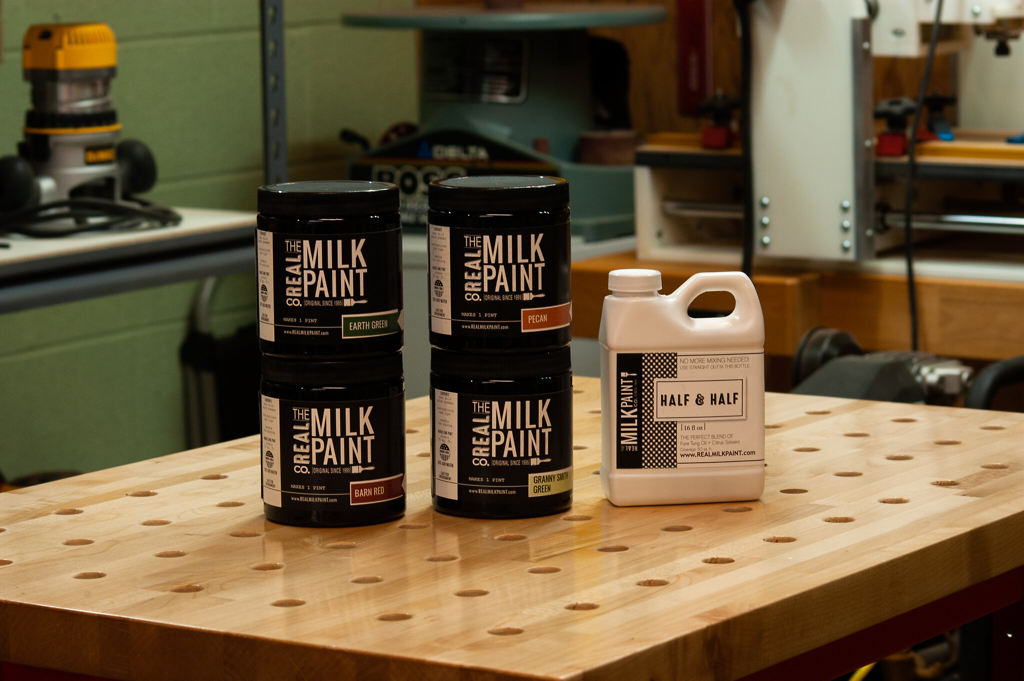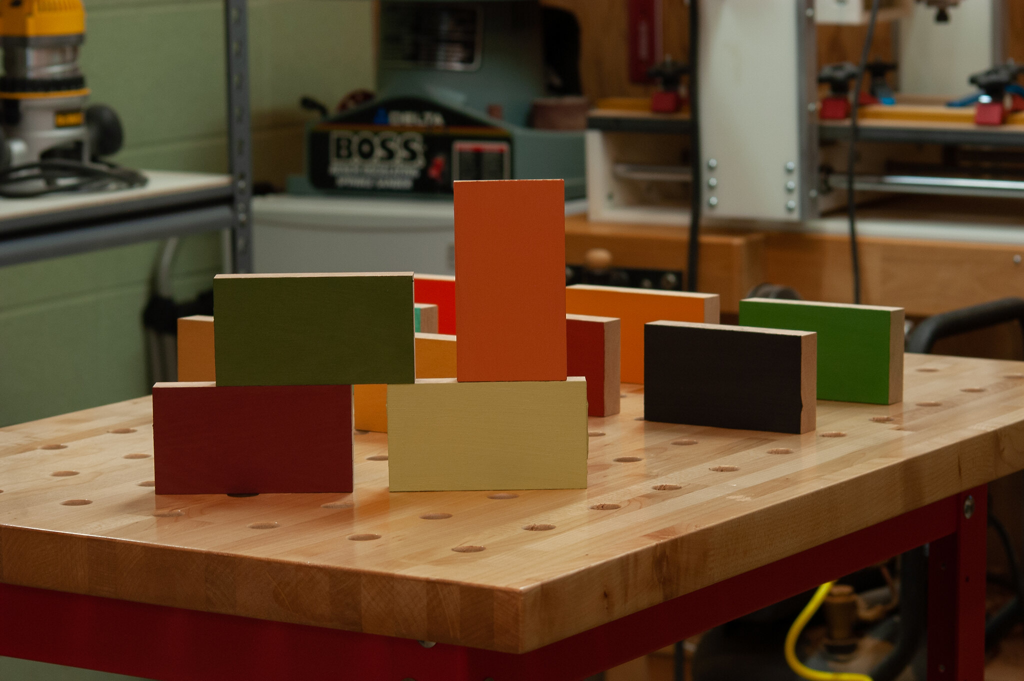Practicality Drives Another Alternative
![]() August 30, 2025 12:18
August 30, 2025 12:18
If you've been following along, you know that in a series of blog posts, I plan to conduct a design study that conceptually builds a very real church, an organ it didn't ask for, using pipes taken from their existing mid-industrial era gallery organ. This design study provides me with the opportunity to develop, if only on paper, an example of my 43-note continuo for a space I am familiar with, using material I am familiar with. I was an organist there for eight years. If you are new to my project, start here and work your way up.
My 43-note continuo design has a chromatic windchest layout. You tune the organ from its right side. The original design with an open 4' in the front has an angled roof that limits the height of the side access panel. This might be a problem for someone tuning an organ variant that contains an open 8' stop beginning at tenor-f, where access to the lowest pipes is height-limited. Throughout my time as an organ builder, I maintained and assisted in maintaining several pipe organs where access to tune, make repairs, and regulate action was restricted. This required us to take more time, which in turn cost the church more money than necessary, adding up over time.
So I redesigned the upper case for the open 4' variant, replacing the angled roof with a more conventional rectangular form. I placed metal pipes in its front, but I can just as easily put the lowest pipes of a triangular wood flute there.
Here is a specification with two 8' stops in the treble, one of which is open.
Stopped Diapason 8' bass
Stopped Diapason 8' discant
Gamba 8' discant
Principal 4' bass
Principal 4' discant
Melodia 4' discant
Mixture III
The paradoxical thing about the new alternative is that not only does it provide better tuning access, its case is about 3" shorter than the angled roof variant.
Posted August 30, 2025 12:18
Add Your Comment
Reuse and Recycle: The Story of a 43-Note Build
by Steve Panizza
Recent Blog Entries
Archive
